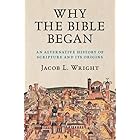| Digital List Price: | $42.00 |
| Kindle Price: | $31.08 Save $10.92 (26%) |
| Sold by: | Amazon.com Services LLC |
Your Memberships & Subscriptions

Download the free Kindle app and start reading Kindle books instantly on your smartphone, tablet, or computer - no Kindle device required.
Read instantly on your browser with Kindle for Web.
Using your mobile phone camera - scan the code below and download the Kindle app.





The Invention of God Kindle Edition
Who invented God? When, why, and where? Thomas Römer seeks to answer these questions about the deity of the great monotheisms—Yhwh, God, or Allah—by tracing Israelite beliefs and their context from the Bronze Age to the end of the Old Testament period in the third century BCE.
That we can address such enigmatic questions at all may come as a surprise. But as Römer makes clear, a wealth of evidence allows us to piece together a reliable account of the origins and evolution of the god of Israel. Römer draws on a long tradition of historical, philological, and exegetical work and on recent discoveries in archaeology and epigraphy to locate the origins of Yhwh in the early Iron Age, when he emerged somewhere in Edom or in the northwest of the Arabian peninsula as a god of the wilderness and of storms and war. He became the sole god of Israel and Jerusalem in fits and starts as other gods, including the mother goddess Asherah, were gradually sidelined. But it was not until a major catastrophe—the destruction of Jerusalem and Judah—that Israelites came to worship Yhwh as the one god of all, creator of heaven and earth, who nevertheless proclaimed a special relationship with Judaism.
A masterpiece of detective work and exposition by one of the world’s leading experts on the Hebrew Bible, The Invention of God casts a clear light on profoundly important questions that are too rarely asked, let alone answered.
-
LanguageEnglish
-
PublisherHarvard University Press
-
Publication dateDecember 14, 2015
-
File size3104 KB
Customers who bought this item also bought
-
 The Origin and Character of God: Ancient Israelite Religion through the Lens of DivinityTheodore J. LewisKindle Edition
The Origin and Character of God: Ancient Israelite Religion through the Lens of DivinityTheodore J. LewisKindle Edition
Editorial Reviews
Review
“Römer deftly weaves together evidence from the Bible with extra-biblical archeological finds that mention Israel and Yhwh to outline the development of monotheism… Not until Jerusalem’s destruction in 587 BCE did Yhwh become the universal, monotheistic god untied to place or particular monarch, the god who was later adopted by Christians and Muslims. Römer writes with clarity and accuracy and tells a compelling story. This book is a masterful work, tying together an enormous amount of information in a concise format.”―Publishers Weekly (starred review)
“Römer is the first to have brought all the relevant material together in such an accessible form, setting out both literary and archaeological evidence clearly and readably.”―John Barton, Church Times
“Römer is a sure-footed guide to what is often a difficult discussion. A learned and elegant book.”―Nathan MacDonald, University of Cambridge
“Römer is interested in the emergence of a deity whose nature is now so familiar that its startling originality no longer startles.”―Brian Bethune, Maclean’s
“Römer presents a scholarly and provocative account of how a minor tribal deity likely grew to become―or revealed himself to be―Lord of Creation.”―David O’Reilly, Philadelphia Inquirer
“There is nothing quite like this book in English. The Invention of God traces the history of the God of Israel from the late Bronze Age to the Hellenistic period, charting the rise of Yhwh as the sole God. The period covered is vast, the thesis is provocative and stimulating, and the scholarship is cutting-edge.”―Timothy Lim, University of Edinburgh
“Römer, a distinguished scholar rather than an ideologue, seeks to determine exactly what is historical and exactly what is not in the depiction of God. This is a brilliant book.”―Robert A. Segal, Times Higher Education
“It reads very well, is well translated and has a bit of the excitement of discovery for engaged readers.”―John C. Endres and Jean-François Racine, America
About the Author
Thomas Römer is Professor of the Hebrew Bible at the Collège de France and Professor at the University of Lausanne.
Product details
- ASIN : B01985ZGGA
- Publisher : Harvard University Press; Illustrated edition (December 14, 2015)
- Publication date : December 14, 2015
- Language : English
- File size : 3104 KB
- Text-to-Speech : Enabled
- Screen Reader : Supported
- Enhanced typesetting : Enabled
- X-Ray : Not Enabled
- Word Wise : Enabled
- Sticky notes : On Kindle Scribe
- Print length : 316 pages
- Best Sellers Rank: #296,121 in Kindle Store (See Top 100 in Kindle Store)
- #126 in Jewish Theology
- #191 in Religious Studies - History
- #332 in History of Judaism
- Customer Reviews:
Customer reviews
Customer Reviews, including Product Star Ratings help customers to learn more about the product and decide whether it is the right product for them.
To calculate the overall star rating and percentage breakdown by star, we don’t use a simple average. Instead, our system considers things like how recent a review is and if the reviewer bought the item on Amazon. It also analyzed reviews to verify trustworthiness.
Learn more how customers reviews work on Amazon-
Top reviews
Top reviews from the United States
There was a problem filtering reviews right now. Please try again later.
This book is a must to any one tring to understand the origin of monotheism.
Top reviews from other countries
One thing Römer stresses is the mutability of the early texts that were later incorporated into the Hebrew Bible. Under most circumstances, papyrus and vellum scrolls don’t remain legible for long and must be copied out again every few decades. This offers ample opportunity to edit, add and delete, and scholars have learned how to spot the tell-tale signs of interpolation.
Römer begins his survey by looking at the god’s name. He opts for Yhwh rather than the more common Yahweh, since we cannot actually be sure about the vowels, which were not written in early Hebrew. He then examines the evidence concerning Yhwh’s geographical origins, concluding that the area around the Negev desert, Sanai and northern Arabia is his most likely source.
How the Ancient Israelites came to adopt Yhwh is uncertain. Römer speculates that a nomadic tribe or clan may have taken him north with them around 1000 BCE. However, the religion of the Israelites and Judahites wasn’t very different from that of their neighbours. Yhwh was just one of the many gods they worshipped, and for a long time, he probably wasn’t their main god. He was also worshipped as a minor god by many of Israel and Judah’s near neighbours.
Römer sets out evidence that suggests Yhwh originally shared Solomon’s temple with other gods – it is likely that the temple’s most important god was in fact a sun god. He shows that the temple probably contained a statue of Yhwh, whilst the golden calves at Bethel and Dan were not seats of Yhwh, as many scholars suggest, but statues of him.
Over time, Yhwh was promoted to the status of the national god of Israel and Judah and began to take on features of other gods. There was nothing unusual about this: something similar happened to national gods in other countries in the region. What was unusual was the emergence in the eighth century BCE of a Yhwh-only party, prophets and priests who insisted that Israelites and Judahites should only worship Yhwh, to the exclusion of all other gods. This was not monotheism: merely a conviction that a covenant with Yhwh forbade the worship of other gods, even Yhwh’s wife Asherah.
In the decades after the fall of the Kingdom of Israel in 720 BCE, the Yhwh-only party came to power in Judah, first (perhaps) under King Hezekiah and later under the boy-King Josiah. Once in power, they tried and largely failed to suppress the worship of other gods. Römer shows that many Judahites would later blame the catastrophic Babylonian invasion of 586 BCE on their failure to give Asherah the devotion due to her.
For those Yhwh-worshipping notables carted off to exile in Babylon, two explanations were possible. Either the Babylonian god Marduk was stronger than Yhwh, or Yhwh himself had used the Babylonians to punish the Judahites for their failure to worship only him. If the latter is the case, then Yhwh becomes a far more powerful god, not merely a national god but one who can use other nations to execute his will. This was an important step on the way to monotheism.
However, Römer says that true monotheism didn’t develop until after the Persians had conquered Babylon and allowed the Jews (as the remnants of the Judahites were now known) to return home and restore their temple. He accepts the thesis that Zoroastrianism influenced both the development of monotheism and the emergence of Satan as God’s adversary, but he says that since we don’t actually know very much about Zoroastrianism in that period, it is difficult to say how this influence manifested itself or how important it was.
Römer briefly takes us through the Persian and Hellenistic eras and discusses the importance of the Jewish diaspora in Egypt and Mesopotamia. He notes the attraction of Jewish monotheism for many gentiles and the emergence of the apocalyptic ideas that would later give birth to Christianity.
This book is very readable, though occasionally I found myself wondering whether the translator should have gone for something like of “place name” rather than a word like “toponym”. Römer guides us through his argument step by step, always laying out his evidence clearly. Since he is aiming at an academic audience, he does assume greater familiarity with history and the Biblical text than many general readers may possess, but in the age of quick searches using Google and Wikipedia, this isn’t much of a problem. If you have some knowledge of the topic and want a cutting-edge understanding of what modern scholarship tells us about the origins of Jewish monotheism, this book is for you.
For everyone with a burning desire to see the history behind the religion a must-read!
This is a scholarly book which is required reading for all who might believe in the God of Israel, Christianity and possibly Islam.
My father was a devout Methodist clergyman in the UK . As a young boy, in about 1946, I read an English translation of Homer's Iliad and asked about all the gods and goddesses in the book. He told me they were inventions of the ancient Greeks of Homer's time. It was not until about 50 years later that I realised that the city of Troy itself was also an invention for the purposes of the poem.
Thomas Romer gives a careful archeological based account of the history of the gods of the people of Judah (Judea) and Israel from around 1000 BC to about 300 BC. Initially, they had several gods and goddesses, gradually narrowing it down to one called Yahweh (Yhwh) or El and a possible companion goddess. During that period of time members of these tribes wrote and rewrote their 'history', inventing, like Homer, the most amazing stories, including all the stories about 'Moses'. They gradually attributed more and more power to their chosen god. If they were defeated in battle, then they said that their god had turned against them. What ever happened to them, they managed to give a construction in which their god continued to be all powerful but they had behaved inappropriately.
Romer demonstrates that many of the incidents or stories in the Old Testament are 'lifted' from historical accounts pertaining to other more powerful peoples of the times, such as the size of the first temple in Jerusalem or the size of Solomon's empire.
He shows that the god that eventually became the Jewish and Christian God was invented by these earlier forbears, and that much of the contents of the Old Testament of the Christian Bible are invented incidents possibly based on accounts or stories from local empires with additional exaggerations which tended to enhance the powers of this selected god.
The book is not easy reading since it is written for other scholars of the period, but its very careful detail and citations make it all the more persuasive.








